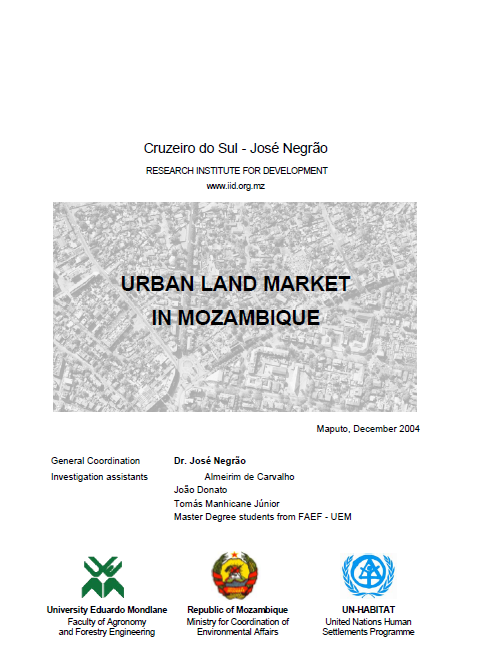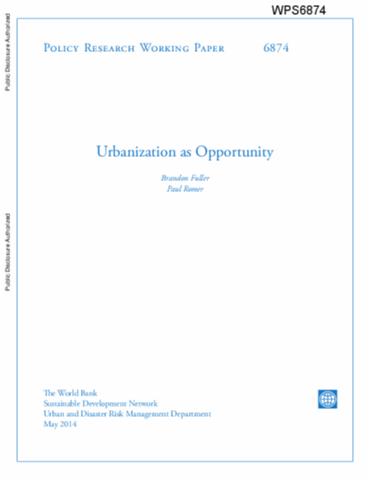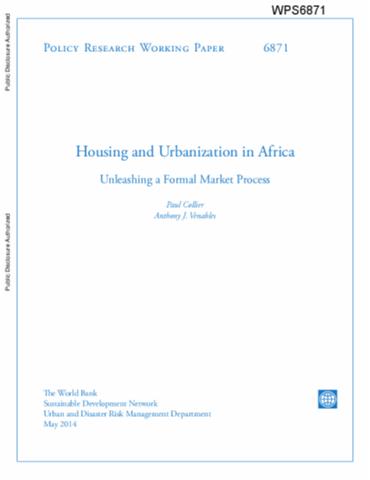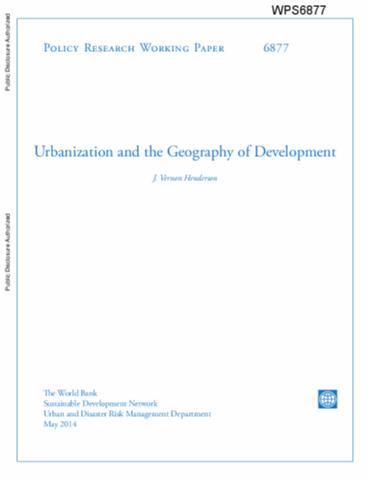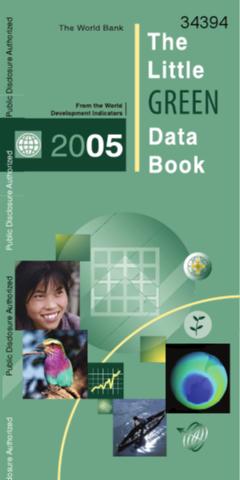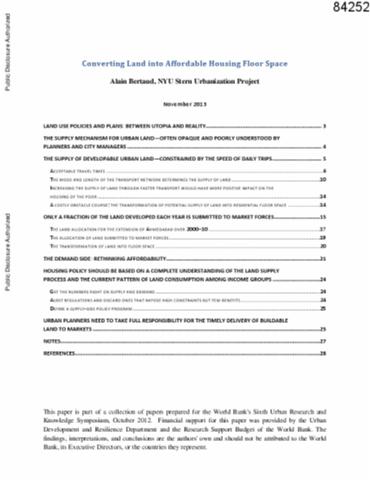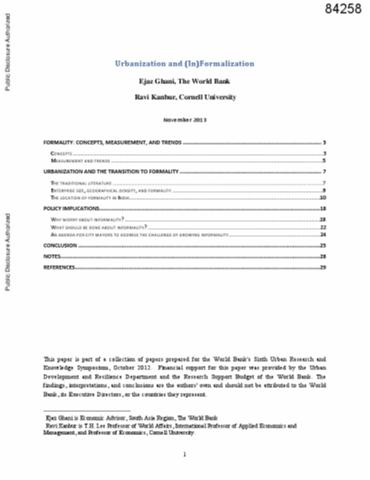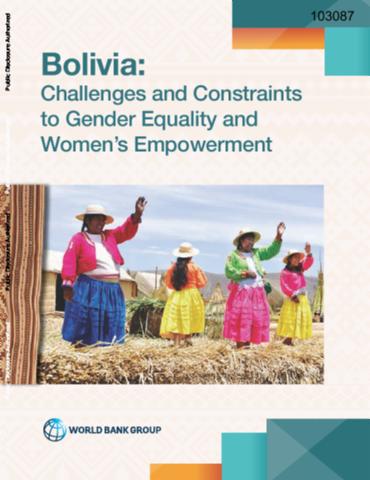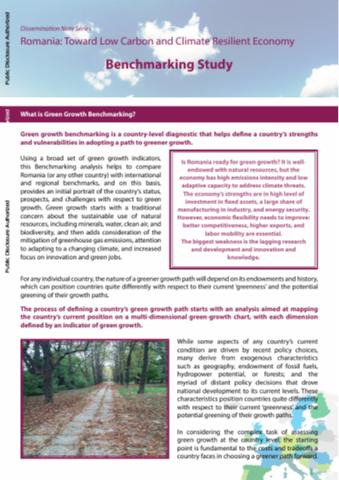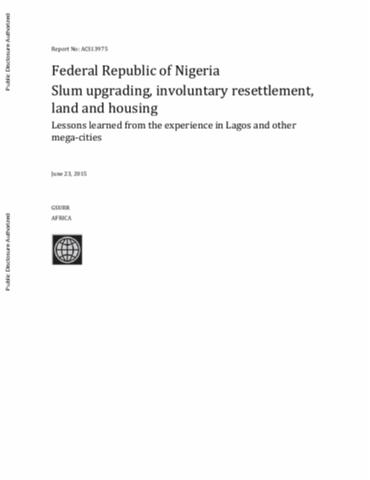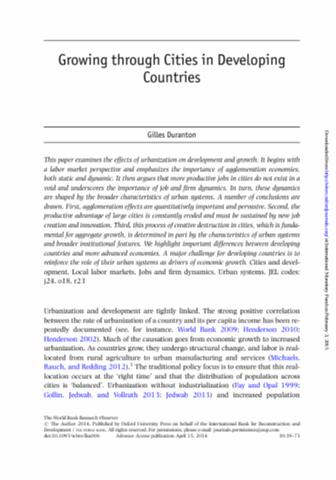Urban Land Market In Mozambique
This study was requested by the Ministry for Coordination of Environmental Affairs (MICOA), through the National Directorate of Territorial Planning (DINAPOT) in conjunction with the United Nations Human Settlements Programme (UN-HABITAT); for this purpose, the team of the Cruzeiro do Sul – Research Institute for Development counted with the participation of a group of students of the Master degree course in agricultural development at the Faculty of Agronomy and Forestry Engineering (FAEF) of the Eduardo Mondlane University (UEM).

